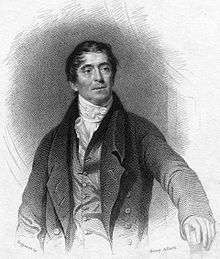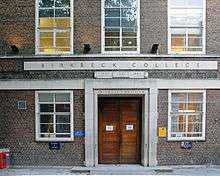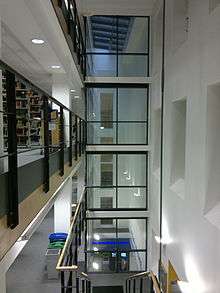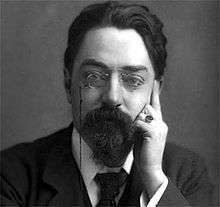Birkbeck, University of London
 | ||||||||||||||||
| Motto | In nocte consilium | |||||||||||||||
|---|---|---|---|---|---|---|---|---|---|---|---|---|---|---|---|---|
Motto in English | "Study by night"[1] | |||||||||||||||
| Type | Public | |||||||||||||||
| Established |
1823 – London Mechanics' Institute 1866 – Birkbeck Literary and Scientific Institution 1907 – Birkbeck College 1920 – Constituent College of University of London | |||||||||||||||
| Endowment | £4.3m[2] | |||||||||||||||
| Chancellor | HRH The Princess Royal (University of London) | |||||||||||||||
| President | The Baroness Bakewell | |||||||||||||||
| Master | David S Latchman | |||||||||||||||
| Students | 13,935 (2014/15)[3] | |||||||||||||||
| Undergraduates | 9,680 (2014/15)[3] | |||||||||||||||
| Postgraduates | 4,255 (2014/15)[3] | |||||||||||||||
| Location | Bloomsbury, London, United Kingdom | |||||||||||||||
| Colours |
| |||||||||||||||
| Affiliations |
University of London Association of Commonwealth Universities | |||||||||||||||
| Website | www.bbk.ac.uk | |||||||||||||||
Birkbeck, University of London (formerly Birkbeck College, informally Birkbeck), is a public research university located in Bloomsbury, London, United Kingdom, which specialises in evening higher education, and a constituent college of the federal University of London.
It offers many Master's and Bachelor's degree programmes that can be studied either part-time or full-time, though nearly all teaching is in the evening. It also admits full-time (as well as part-time) students for PhDs. Its staff members have excellent research reputations in subjects such as English, Economics, Statistics, History, History of Art, Philosophy, Psychology, Spanish and Science. It also offers many continuing education courses leading to certificates and diplomas, foundation degrees as well as other short courses.
Birkbeck counts four Nobel prize winners and a British Prime Minister among its former students and faculty. Birkbeck, being part of the University of London, shares the University’s academic standards and awards University of London degrees. In common with the other University of London colleges, Birkbeck has also secured its own independent degree awarding powers, which were confirmed by the Privy Council in July 2012. The quality of degrees awarded by Birkbeck was confirmed by the UK Quality Assurance Agency following institutional audits in 2005 and 2010.[4]
Established in 1823, Birkbeck has a long history of offering the highest quality university education. It is a multi-faculty institution offering over 200 full-time undergraduate and postgraduate programmes.[5] Research at Birkbeck in 11 subject areas is rated as ‘internationally excellent’ and ‘world leading’ while over 90 percent of Birkbeck academics are research-active and many are renowned world-class experts in their fields. The Queen’s Anniversary Prize for excellence in higher education research was awarded in 2006. This research was undertaken by Birkbeck’s Centre for Brain and Cognitive Development – a leading centre for neuropsychological research.[5]
History
Founding

In 1823, George Birkbeck, a physician and graduate of the University of Edinburgh Medical School and an early pioneer of adult education, founded the then "London Mechanics' Institute" at a meeting at the Crown and Anchor Tavern on the Strand. Over two thousand people attended.[6] However the idea was not universally popular and some accused Birkbeck of "scattering the seeds of evil."[7]
Two years later, the institute moved to the Southampton Buildings on Chancery Lane. In 1830, the first female students were admitted. In 1858, changes to the University of London's structure resulting in an opening up of access to the examinations for its degree. The Institute became the main provider of part-time university education.[6]
The Institute changed its name to the "Birkbeck Literary and Scientific Institution" in 1866 and in 1885 it moved to the Breams Building, on Fetter Lane, where it would remain for the next sixty-seven years.[6]
Birkbeck College
The early twentieth century saw further developments, with Birkbeck Students' Union being established in 1904, and in 1907 the institute's name changed once more, to "Birkbeck College". In 1913, a review of the University of London (which had been restructured in 1900) successfully recommended that Birkbeck become a constituent college, although the outbreak of the First World War delayed this until 1920. The Royal Charter for the college was granted in 1926.[6] The college's first female professor, Dame Helen Gwynne-Vaughan began teaching botany in 1921.[7] Among the other distinguished faculty in the of the inter-war years were Nikolaus Pevsner, J. D. Bernal and Cyril Joad.
During the Second World War, Birkbeck was the only central University of London college not to relocate out of the capital. In 1941, the library suffered a direct hit during The Blitz but teaching continued. During the war the College organised lunch time extramural lectures for the public given by, among others, Joad, Pevsner and Harold Nicolson.
In 1952, the college moved to its present location in Malet Street.[6]

Current status
In 2002, the college was renamed, becoming simply Birkbeck, University of London; the term Birkbeck College is still in use, and survives on the façade of the main building itself. The following year, a major redevelopment of the Malet Street building was opened.[6]
It was announced in 2006 that Birkbeck had been granted £5 million by the Higher Education Funding Council for England to expand its provision into east London, working with the University of East London.[8] The partnership was formally launched on November 21, 2006 and is called Birkbeck Stratford.[9]
It is the largest College of the University of London not to award its own degrees, though it has Degree Awarding Powers, Birkbeck has chosen to hold these in reserve whilst it can award University of London degrees.
The School of Continuing Education
The School of Continuing Education (aka the Faculty of Lifelong Learning), which specialised in extramural studies did not become an integral part of Birkbeck until 1988 but has a long separate history. It has now been integrated into the main College.
In 1876, the London Society for the Extension of University Education was founded, boosting the aims of encouraging working people to undertake higher education. In 1988, the Department of Extra-Mural Studies of the University of London was incorporated into Birkbeck, becoming at first the Centre for Extramural Studies. In 1903, it became the Department of Extra-Mural Studies of the University of London and it was integrated into Birkbeck in 1988. In 2009, the Faculty of Lifelong Learning was incorporated into the main College structure.[10]
Campus and location

Birkbeck's main building is located between Malet Street and Woburn Square in Bloomsbury, with a number of buildings on nearby streets. The School of Arts, including the Department of English & Humanities, is housed in Virginia Woolf's former Gordon Square residence in Bloomsbury. Other notable former residents of this house include Vanessa Bell, John Maynard Keynes and Lydia Lopokova.
Many Birkbeck classes are taught at other locations across the Bloomsbury area, due to a combination of Birkbeck's widening participation strategy to make higher education accessible and also because nearly all classes on one day are taught at the same time, resulting in heavy competition for limited space.
In 2006, it was announced that Birkbeck would be expanding into east London, in conjunction with the University of East London. The project is known as Birkbeck Stratford.[8] The new campus officially opened in November 2013.[11]
Research and teaching

While part-time undergraduate teaching remains the focus and mandate of Birkbeck, the college has recently begun to focus on research in the arts and humanities.
The Birkbeck Institute for the Humanities[12] was established in 2004, with the renowned but controversial Slovenian philosopher Slavoj Žižek appointed as International Director. According to its website, the Institute aims to, among other things, "engage with important public issues of our time through a series of open debates, lectures, seminars and conferences" and "foster and promote a climate of interdisciplinary research and collaboration among academics and researchers". The launch of the Institute wasn't without controversy, provoking an article in The Observer newspaper titled "What have intellectuals ever done for the world?"[13] which criticised the ostensible irrelevance and elitism of contemporary public intellectuals. The current director of the institute is Costas Douzinas.[14]
2004 also saw Birkbeck enter into a research and teaching collaboration with the Institute of Education, jointly founding the London Knowledge Lab. This interdisciplinary research institute brings together social scientists and computer scientists to address research questions about technology and learning.[15]
Meanwhile, the London Consortium graduate school — a collaboration between Birkbeck, the Tate Galleries, the Institute of Contemporary Arts, the Architectural Association, and, until 1999, the British Film Institute – has been running since the mid-1990s, offering masters and doctoral degrees in the interdisciplinary humanities and cultural studies, resourced and jointly taught by all the participating institutions. Its permanent and adjunct faculty include figures such as Tom McCarthy, Colin MacCabe, Laura Mulvey, Steven Connor, Marina Warner, Juliet Mitchell, Stuart Hall, Roger Scruton, Salman Rushdie, Tilda Swinton as well as Slavoj Žižek. Its current chair is Anthony Julius.
Science research at Birkbeck has a notable tradition. Physicist David Bohm who made notable contributions to the theory of Quantum mechanics was professor of Theoretical Physics from 1961–87 and Nobel Laureates Aaron Klug and Derek Barton both worked in the faculty of crystallography. Birkbeck is part of the Institute of Structural Molecular Biology, which includes the Bloomsbury Centre for Structural biology, established in 1998. This is a collaborative venture between Birkbeck College and University College London and is a leading academic centre for translating gene sequences and determining protein structure and function. It also includes the Bloomsbury Centre for Bioinformatics, a collaborative venture also between Birkbeck College and University College London for research into Bioinformatics, Genomics, Systems Biology, GRID computing and Text mining.
Rankings
| QS[16] (2015/16, national) | 39 |
|---|---|
| QS[17] (2015/16, world) | 290 |
| THE[18] (2015/16, national) | 36 |
| THE[18] (2015/16, world) | 201–250 |
Birkbeck is often not included in rankings of British universities, since these are usually based on the statistics for full-time undergraduates. But still, Birkbeck ranked 13th in The Guardian's 2001 Research Assessment Exercise league table and 26th in Times Higher Education's equivalent table. In the 2008 RAE results, Birkbeck ranked in the top 25% of UK multi-faculty Higher Education Institutions. The RAE rated the quality of research in a range of subjects at 159 Higher Education Institutions in the UK. Birkbeck submissions from Earth Sciences, Psychology, History, Classics and Archaeology and History of Art, Film and Visual Media were rated in the top five nationally.
The 2010 QS World University Rankings placed Birkbeck at 93rd in the world for Arts and Humanities. In the same year the Times Higher Education World University Rankings placed Birkbeck 152nd overall, ahead of five Russell Group universities – Newcastle University, University of Liverpool, University of Leeds, University of Nottingham and University of Exeter. In 2011 QS World University Rankings placed Birkbeck at 111th for Arts & Humanities.[19] In the 2011–12 Times Higher Education World University Rankings Birkbeck was ranked 149th in the world.[20] The data also show that Birkbeck is ranked 23rd in the UK and is rated above several large Russell Group universities, including the University of Warwick, University of Exeter, and Cardiff University.[21] In the 2012–13 Times Higher Education World University Rankings Birkbeck is ranked 200th in the world and 31st in the United Kingdom. In the QS ranking Birkbeck climbed up two places to 109th for Arts and Humanities.
In 2010, Birkbeck was shortlisted for the prestigious Times Higher Education University of the Year Award.[22]
Departmental
The Guardian's 2001 RAE subject ranking league tables put Birkbeck in the top 10 for research in the following subjects: English (1st), History (1st), History of Art (2nd), Philosophy (6th), Psychology (5th), Iberian and Latin American Languages (1st), Earth Sciences (4th), Law (9th), Economics and Econometrics (5th), and Politics and International Studies (5th).
Birkbeck's School of English and Humanities was rated 5* in the 2001 Research Assessment Exercise, as were the School of History, Classics and Archaeology, the School of Crystallography (2009 became part of the Department of Biological Sciences), and the section for Spanish and Latin American studies within the School of Languages, Linguistics and Culture, and the Dept. of Psychological Sciences in the School of Psychology—ranking these departments with, and in some cases above, Oxford and Cambridge University.
Student life
As Birkbeck primarily offers part-time courses, often in the evenings, student life is less centralised than in other universities. It does not offer its own halls of residence, for instance, though Birkbeck students do have access to the University of London's intercollegiate halls.
Birkbeck Students' Union offers a number of societies for students, as well as a football club that competes in the University of London league. It also provides student representation and support, a student magazine, a student shop and a bar. Birkbeck students also have access to the societies and clubs of the Student Central, whose building adjoins Birkbeck's Bloomsbury site.
The college arms include a lamp and an owl, symbolising the college's motto 'In nocte consilium' (translated as "study by night"). Because of this, the student magazine was called Lamp and Owl. Its name was changed in 2010 to 'Lampanelle', and after an 18-month hiatus returned in February 2012 with the name having reverted to The Lamp And Owl.
The original name of the institution was the London Mechanics' Institute. For this reason, the annual literary magazine published by the Birkbeck MA Creative Writing programme is called The Mechanics' Institute Review.
University Challenge
The college has entered teams in 'University Challenge' over the years, with varied results. In 1997, a team scored just 40 points – at that stage the lowest score since the series had been revived, though this has since been broken by New Hall, Cambridge, the University of Bradford and the University Challenge: The Professionals team of Members of Parliament.[23] 1998 saw a reversal of fortunes when Birkbeck reached the final, losing to Magdalen College, Oxford. In 2003, Birkbeck again reached the final, facing another team of mature students from Cranfield University. On this occasion, Birkbeck won.
In the past two decades Birkbeck, University of London has consistently done well in University Challenge, ranked among the best[24] since the TV series was revived with Jeremy Paxman.
Mooting
Birkbeck's School of Law actively competes in national and international mooting competitions of simulated court proceedings. At the 2012 Inner Temple Inter-Varsity Moot Birkbeck went through to the quarter-finals, being selected as one of the final eight teams of the 32 UK Universities (64 teams) which competed for the prestigious Inner Temple award. In 2012 Birkbeck was entered in the prized University of Oxford-based Price Moot Competition and finished within the top 15 Law Schools in the competition. The competition draws Law Schools from universities all around the world and focuses on international law.
Notable people
|
See also
References
- ↑ Translation used by Birkbeck."Centre for Learning and Professional Development – Communication Skills". Birkbeck, University of London. Retrieved 2007-08-05.
- ↑ "Financial Statements for the year ended 31 July 2014". Retrieved 2015-08-14.
- 1 2 3 "2014/15 Students by HE provider, level, mode and domicile" (XLSX). Higher Education Statistics Agency. Retrieved 19 January 2016.
- ↑ "Degree-awarding powers". http://www.bbk.ac.uk/. Birkbeck, University of London. Retrieved 9 September 2015. External link in
|website=(help) - 1 2 "About Birkbeck, University of London". http://www.oncampus.global/. FoundationCampus Limited. Retrieved 11 September 2015. External link in
|website=(help) - 1 2 3 4 5 6 "The History of Birkbeck". Birkbeck, University of London. Archived from the original on 2006-10-06. Retrieved 2006-11-26.
- 1 2 Birkbeck, University of London Continuing Education Courses 2002 Entry. Birkbeck External Relations Department. 2002. p. 5.
- 1 2 "Birkbeck projects win £8.7m HEFCE funding for innovative higher education provision in London". Birkbeck, University of London. Archived from the original on June 27, 2006. Retrieved 2006-11-26.
- ↑ "Birkbeck/UEL Partnership at Stratford launched". Birkbeck, University of London. Retrieved 2006-11-26.
- ↑ Birkbeck, University of London Continuing Education Courses 2004 Entry. Birkbeck External Relations Department. 2004. p. 4.
- ↑ "University of East London and Birkbeck open new £33m campus in Stratford". Birkbeck. 7 November 2013. Retrieved 14 August 2015.
- ↑ "Birkbeck Institute for the Humanities". Retrieved 2006-11-26.
- ↑ "What have intellectuals ever done for the world?". The Observer November 28, 2004. Retrieved 2006-11-18.
- ↑ "Our staff". Birkbeck, University of London. Retrieved 14 August 2015.
- ↑ 'ALT Lab Group: London Knowledge Lab' page. Association for Learning Technology Lab Group website. Available online at: http://www.labgroup.org.uk/london-knowledge-lab.php
- ↑ "QS World University Rankings 2015/16 - United Kingdom". Quacquarelli Symonds Ltd. Retrieved 14 September 2015.
- ↑ "QS World University Rankings 2015/16". Quacquarelli Symonds Ltd. Retrieved 14 September 2015.
- 1 2 "World University Rankings 2015-16". Times Higher Education. Retrieved 1 October 2015.
- ↑ "Top Universities – QS World University Rankings 2011". TopUniversities.com. Retrieved 2012-04-10.
- ↑ "Top 200 – The Times Higher Education World University Rankings 2011–2012". Timeshighereducation.co.uk. Retrieved 2011-12-10.
- ↑ "Birkbeck ranked in Top 200 of World Universities". Bbk.ac.uk. 2010-09-16. Retrieved 2010-12-30.
- ↑ "The Awards 2010". Times Higher Education. Retrieved 2010-12-30.
- ↑ New Hall, Cambridge in 1998 and University of Bradford in 2004 both scored 35 points. In the special series 'University Challenge: The Professionals', the Members of Parliament achieved 25 points – the lowest score in the modern era. The score of 40 has also been achieved by Oxford Brookes University (1998), the University of St Andrews (2002 & 2005), Keele University (2002) and Queen's University Belfast (2005). Statistics for the original incarnation of the series are not known, though the lowest score achieved was by the University of Sussex in 1972 with a score of 10. "University Challenge – Lowest Scores". Sean Blanchflower's University Challenge Page. Retrieved 2006-11-18.
- ↑ University Challenge – All-time rankings. Blanchflower.org. Retrieved on 2013-07-17.
- ↑ http://www.elle.com/culture/celebrities/interviews/a31408/daisy-ridley-elle-december-2015-cover-story/
- ↑ http://failover-www.thesundaytimes.co.uk/style/living/article1642376.html
External links
| Wikimedia Commons has media related to Birkbeck College. |
- Official Website of Birkbeck, University of London
- Birkbeck, University of London student lists
- Birkbeck, University of London military personnel,1914–1918
| |||||||||||||||||||||||||||||||
Coordinates: 51°31′18″N 0°07′46″W / 51.521728°N 0.129338°W





.jpg)

